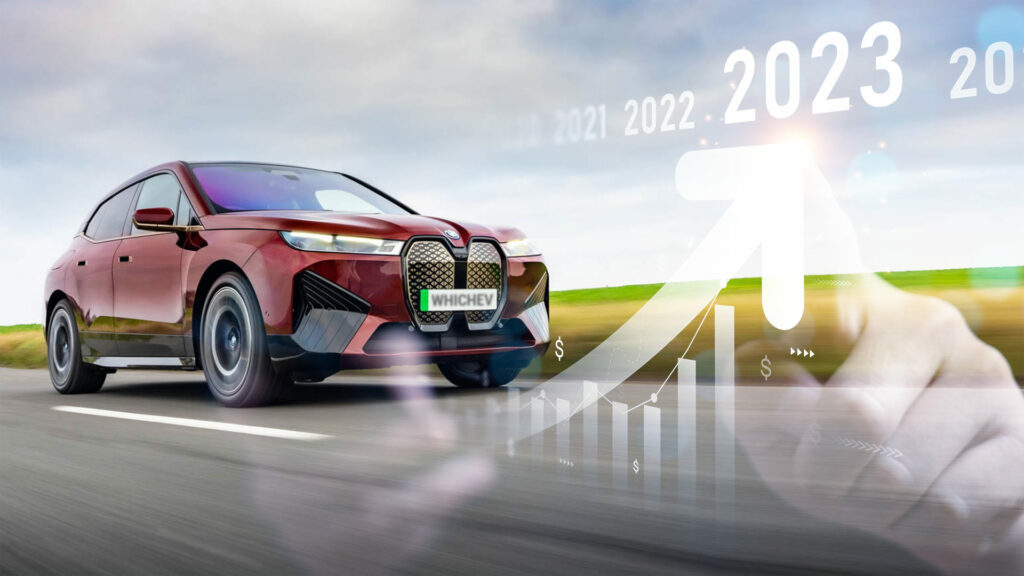UK new car sales have grown for the ninth consecutive month in April, according to the latest figures released by the Society of Motor Manufacturers and Traders (SMMT). The SMMT revealed that the new car market recorded an increase of 11.6%, reaching 132,990 registrations. This is good news for the UK overall and the vehicle market in particular.
The numbers were driven by a huge increase in ‘large fleet registrations. This figure grew by more than 33% to 68,537 units, while deliveries to private buyers decreased slightly by 5.5% to 61,342 units.
Sales of battery electric vehicles (BEVs) have increased over 59% comparing April 2022 to April 2023 – and pure EVs have retained their position as the second most popular fuel type with 15.4% of the overall market.
Worries about the on-going over-inflated price of electricity – alongside insufficient growth in the public charging infrastructure – has meant a softening of the predicted numbers for EV growth in the near future.
The SMMT had been predicting that the end-of-year market share for BEV in the UK would be 19.7% for 2023, but that has now dropped slightly to 18.4%.
The SMMT forecast for 2024 was also reduced from 23.3% to 22.6%.
As supply chain issues resolve themselves, the overall market for cars in the UK will continue to grow – probably by as much as 40,000 units by the year end of 2023. That increased estimate is the first positive revision announced by the SMMT in two years. The expected increase of 13.5% would make 2023 the best year for gains 1983.
The SMMT Chief Executive, Mike Hawes, commented that “the new car market is increasingly bullish, as easing supply chain pressures provide a much-needed boost. However, the broader economic conditions and chargepoint anxiety are beginning to cast a cloud over the market's eagerness to adopt zero-emission mobility at the scale and pace needed.”
The automotive industry is a vital part of the UK economy and integral to supporting the delivery of the agendas for levelling up, net zero, advancing global Britain, and the plan for growth. Automotive-related manufacturing contributes £67 billion turnover and £14 billion value added to the UK economy, and typically invests around £3 billion each year in R&D. With more than 182,000 people employed in manufacturing and some 780,000 in total across the wider automotive industry, we account for 10% of total UK goods exports with more than 130 countries importing UK produced vehicles, generating £77 billion of trade.
More than 25 manufacturing brands build more than 70 models of vehicles in the UK, plus an array of specialist small volume manufacturers, supported by some 2,500 supply chain businesses and some of the world's most skilled engineers. Many of these jobs are outside London and the Southeast, with wages that are around 14% higher than the UK average. The automotive sector also supports jobs in other key sectors – including advertising, finance and logistics.
You can get a detailed breakdown of driving in the UK today, from this link.
